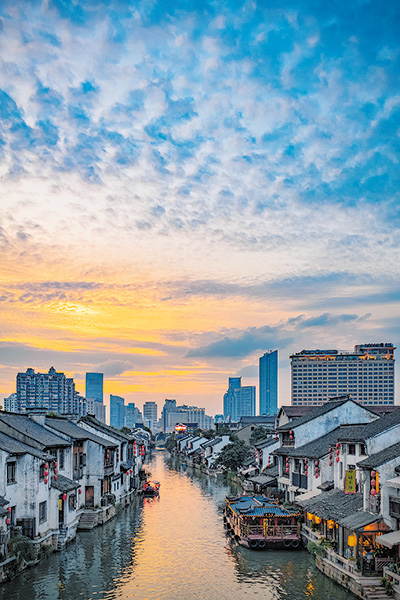Wuxi builds on its heritage
Ancient charm coexists with modernity in this 3,000-year-old city, Douglas Dueno reports.


Cultural legacy
Huishan Ancient Town, situated at the foothills of Huishan Mountain west of Wuxi, is an exceptionally well-preserved example of how a city can preserve its cultural heritage while modernizing.
The town is a national 5A-level tourist attraction. It still retains its historical feel, home to four National Key Cultural Relics Protection Units, including the villa-style Jichang Garden at the foothill of the mountain, the Ancestral Temples of Huishan Courtyard, the Stone Carvings of the Second Spring Under Heaven and the Huishan Temple Buddhist Stone Inscriptions.
Touring Huishan Ancient Town's streets, visitors can taste the city's cultural legacy. From the cut-stone sidewalks and carriageways to the building facades, where every nook and cranny is filled with sculptures, the layout and design reflects, with high accuracy, traditional Chinese architectural style and urban planning.
At the same time, in accordance with contemporary lifestyle and taste, the sophisticated interiors of the shops hint at individualism and a preference for openness over ornamentation.
In this way the ancient town maintains a balance between tradition and modernity, preserving a structure's facade while constructing a new interior.
Historic designations can impose limitations on how a city is able to develop and expand, and the question of what buildings to mark for preservation has no obvious answer.

































